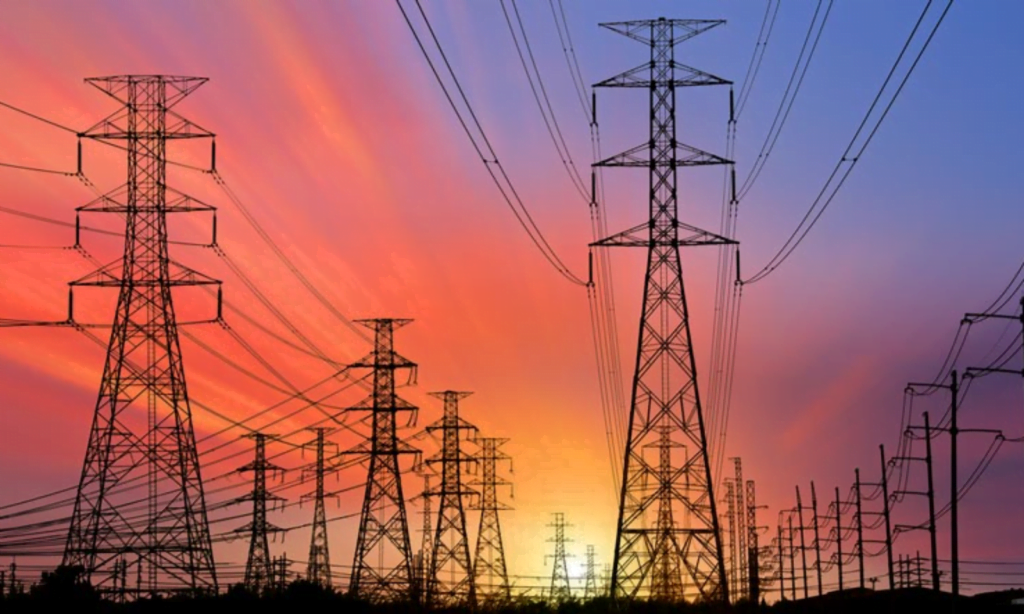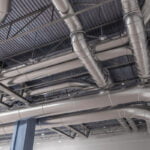Why DEWA Approvals are Important for Buildings and Infrastructure in the UAE?
Are you planning to build or renovate your property in the UAE? One of the most crucial things you need to consider is obtaining DEWA approvals.
Wondering why DEWA approvals are important for buildings and infrastructure in the UAE? Well, buckle up because we’re about to take you on a deep dive into:
What they are, why they matter, and how they can affect your project’s success. Get ready to discover everything you need to know about DEWA approvals!
What is DEWA Approval?
In the United Arab Emirates, all buildings and infrastructure projects must be approved by the Dubai Electricity and Water Authority (DEWA) before construction can begin. This process is known as DEWA approval.
DEWA approval is required for any project that involves the installation of electrical or water systems, the construction of new buildings, or major renovations to existing buildings.
The approval process ensures that all projects meet DEWA’s high standards for safety, quality, and sustainability.
DEWA approval is a critical step in ensuring that all buildings and infrastructure projects in the UAE are safe, reliable, and sustainable.
By working with DEWA to obtain approval for your project, you can be sure that your project meets all the necessary requirements.
Why Is DEWA Approval Important?
DEWA approval is important for several reasons. First, it ensures that the building or infrastructure meets all the required safety and quality standards.
Second, it gives the go-ahead for construction to commence. Third, DEWA approval is required for the issuance of an occupancy permit.
And finally, it is a prerequisite for connection to utility services such as water and electricity.
Who Needs a DEWA Approval?
If you are planning to build a new commercial or residential development in the UAE, you will need to obtain DEWA approval.
This is because all buildings and infrastructure projects in the UAE must comply with the strict standards set by the Dubai Electricity and Water Authority.
DEWA approval is required for any construction project that involves electric or water lines, as well as for any project that includes changes to existing electric or water lines.
DEWA approval is also needed for any construction project that will increase the electricity or water demand on the existing infrastructure.
Projects that require DEWA approval :
-New commercial and residential developments
-Renovations and expansions of existing buildings
-Construction of new roads, bridges, and other infrastructure projects
-Installation of new electric or water lines
-Changes to existing electric or water lines
What is Required to Get a DEWA Approval?
DEWA is the regulatory authority in charge of approvals for buildings and infrastructure projects in the United Arab Emirates.
To obtain DEWA approval, an applicant must submit a complete set of plans and drawings detailing the proposed project, along with all required supporting documentation.
The review process may vary depending on the size and scope of the project, but typically takes between 4-8 weeks.
Once all required information has been reviewed and approved, DEWA will issue a formal letter of approval.
It is important to note that obtaining a DEWA approval does not guarantee that construction can commence immediately.
There are often additional steps that must be taken before building work can begin, such as acquiring a permit from Dubai Municipality.
How Much Does It Cost?
DEWA approval is required for any building or infrastructure project in the UAE. The cost of obtaining a DEWA approval depends on the type and size of the project.
For small projects, the fees are AED 100 for buildings and AED 50 for infrastructure projects.
For medium-sized projects, the fees are AED 1,000 for buildings and AED 500 for infrastructure projects.
For large projects, the fees are AED 10,000 for buildings and AED 5,000 for infrastructure projects.
Benefits of DEWA Compliance
DEWA is the regulatory body for the water and electricity sector in the UAE, and compliance with DEWA regulations is important for buildings and infrastructure projects in the country.
DEWA compliance ensures that buildings and infrastructure are designed and built to meet the highest standards of safety, quality, and efficiency.
DEWA compliance also helps to protect the environment by ensuring that water and energy resources are used efficiently and sustainably.
In addition, DEWA compliance can help improve the resiliency of buildings and infrastructures against extreme weather events:
Such as floods, heatwaves, and dust storms – by ensuring that they meet stringent safety standards.
Finally, DEWA compliance can help reduce energy bills and save money by helping to identify energy efficiency opportunities that can be implemented during the design and construction process.
The Process of Getting a DEWA Approval
The process of getting DEWA approval can be divided into two main steps:
First, the applicant must submit a complete and accurate application, including all required supporting documentation.
And second, DEWA must review and approve the application.
To ensure that your application is complete and accurate, it is important to consult with an experienced professional.
Who is familiar with the requirements of the UAE’s building and infrastructure regulations. Once your application is submitted, DEWA will review it for compliance with all relevant regulations.
If everything is in order, your application will be approved, and you will be able to proceed with your building or infrastructure project.
Types of DEWA Approvals
There are four main types of DEWA approval that are required for construction projects in the UAE:
Planning Permission:
This is required for any construction project that will result in changes to the physical structure of a building or site. This includes new buildings, extensions, and alterations to existing structures.
Use Permission:
This is required for any construction project that will result in changes to the use of a building or site.
This includes projects that will change the way a building is used, such as converting a residential property into a commercial office space.
Occupancy Permission:
This is required for any construction project that will result in changes to the occupancy of a building or site.
This includes projects that will add additional occupants to a property, such as adding an extra floor to an office block.
Environmental Impact Assessment (EIA):
This is required for any construction project that could have a significant impact on the environment.
An EIA must be carried out before work can begin on any project that could potentially cause pollution, damage natural habitats, or have other negative environmental impacts.
These four types of DEWA approval must be obtained before any construction project can begin in the UAE. Failure to secure the necessary approval may result in fines or other penalties.
Advantages of Having DEWA Inspections and Certifications
DEWA is the Regulatory Authority for Electricity and Water in Dubai and is responsible for ensuring that all buildings and infrastructure in the UAE meet the required standards.
DEWA Inspections and Certifications are therefore essential for any construction project in Dubai.
The main advantage of having DEWA Inspections and Certifications is that they provide a means of ensuring that all buildings and infrastructure meet the required safety standards.
This is particularly important in Dubai, where the climate can be extreme and there is a high risk of fire.
DEWA Inspections and Certifications also ensure that buildings are designed to be energy efficient, which can save money on utility bills.
Another advantage of having DEWA Inspections and Certifications is that they help to protect the environment.
For example, DEWA Certification ensures that buildings are constructed using materials that do not damage or pollute the environment.
This helps to create a sustainable city that can continue to thrive in the future. Having DEWA Inspections and Certifications is essential for any construction project in Dubai.
They provide a way of ensuring safety, efficiency, and sustainability, which are all crucial factors in creating a successful building or piece of infrastructure.
Regulations Surrounding DEWA Approvals
As the sole provider of electricity and water in Dubai, DEWA (Dubai Electricity and Water Authority) is responsible for approving all buildings and infrastructure projects in the city.
This includes ensuring that all new developments comply with the latest safety, health, and environmental regulations.
DEWA Approvals must be obtained for any new construction project in Dubai, as well as for any significant changes to existing buildings or infrastructure.
This approval process helps to ensure that all developments in the city are safe, reliable, and sustainable.
To obtain DEWA Approval, developers must submit a completed application form along with a detailed project proposal.
Once DEWA has reviewed the proposal, they will provide feedback and may request additional information before deciding.
Once DEWA approves a project, developers will be required to follow certain guidelines during construction.
These guidelines are designed to protect workers, the public, and the environment. After completion of the project, DEWA will carry out final inspections to ensure that everything has been built according to their standards.
The Various Departments Involved in the Process
There are various departments involved in the process of obtaining DEWA approvals for buildings and infrastructure projects in the UAE. These include:
The Department of Economic Development (DED),
The Department of Planning and Infrastructure (DPI),
The Department of Infrastructure and Transport (DIT),
And the Department of Energy and Water Resources (DEWR).
The DED is responsible for issuing building permits and approving construction plans. The DPI is responsible for reviewing and approving infrastructure plans.
The DIT is responsible for reviewing and approving transportation plans. DEWR is responsible for issuing water and electricity connection approvals.
Timelines and Key Milestones
As the sole provider of electricity and water in Dubai, DEWA is responsible for approving all new buildings and infrastructure projects in the city.
This approval process is important to ensure that all new developments meet the high standards set by the UAE government.
DEWA Approvals are required for all new buildings, infrastructure projects, and any modifications to existing structures that may affect the water or electricity supply.
The approval process is designed to ensure that all new developments meet the high standards set by the UAE government.
The first step in obtaining DEWA Approval is to submit a completed application form along with all required supporting documentation.
Once your application has been reviewed and approved, you will be issued a permit which must be displayed at the site of your project.
DEWA Approval is valid for a period of one year from the date of issuance and can be renewed annually as needed.
If you have any questions about the approval process, please contact DEWA directly.
Conclusion
As the UAE continues to rapidly grow and develop, using a trusted authority like DEWA for approvals on buildings and infrastructure projects is essential.
Not only do their processes help make sure that all construction meets safety standards, but they also protect businesses from any cost overruns or delays related to obtaining necessary permits.
The approval process can take some time and effort, but in the end, it will be worth it to ensure you have a safe structure that complies with regulations.
By keeping DEWA in mind as you plan your next project you can be confident that you are taking the right steps for success!



